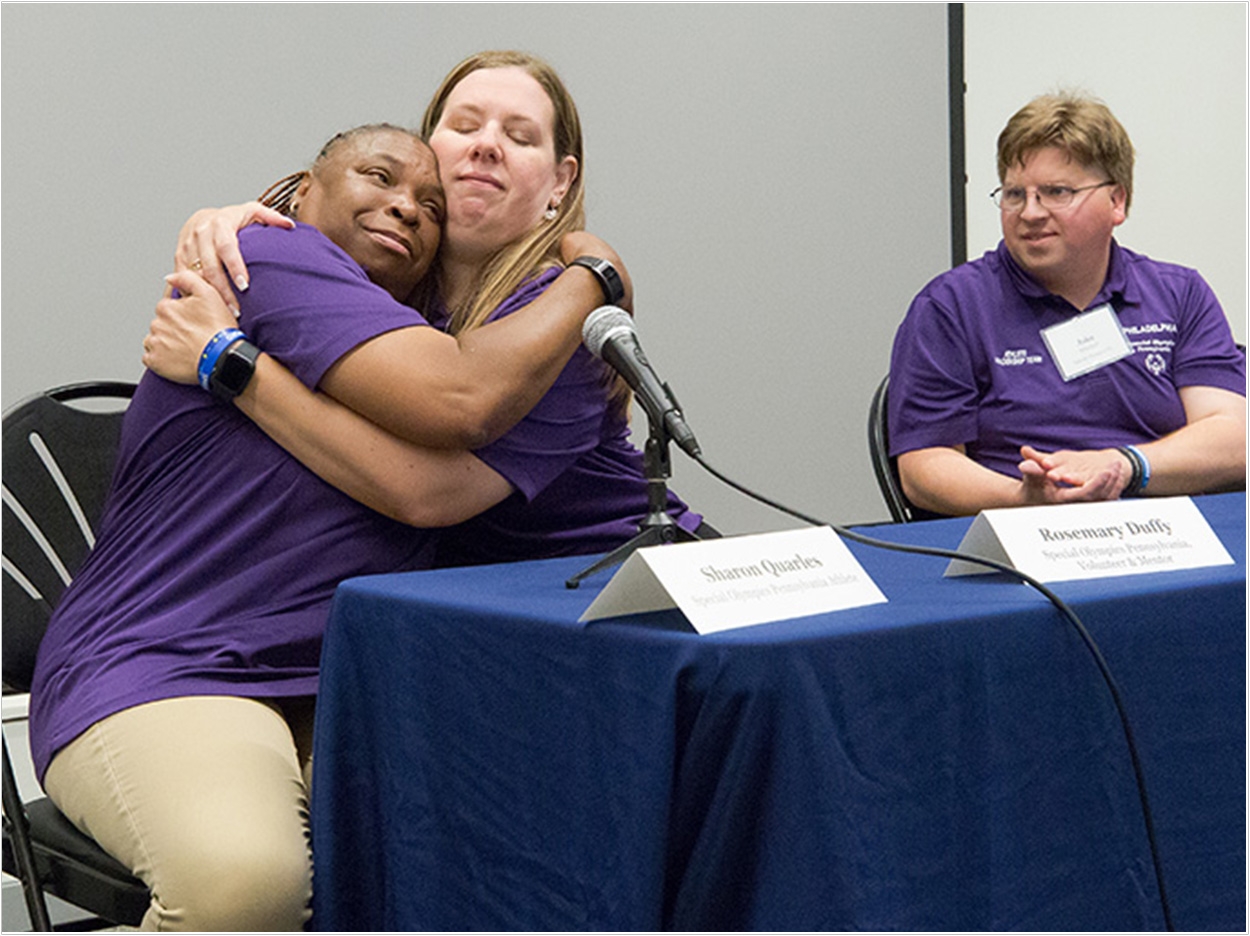
Educators, industry leaders, policymakers, clinicians, caregivers, and people with disabilities gathered at the University of Pennsylvania School of Dental Medicine on June 17 and 18 for Project Accessible Oral Health’s (PAOH’s) “Champions for Oral Health Care in the Disability Community” to discuss strategies and solutions for improving access to care.
“We are pleased to host this event and continue to work to improve access to quality oral healthcare for all,” said Mark Wolff, DDS, PhD, Morton Amsterdam Dean of Penn Dental and cofounder of PAOH, a public-private partnership operating under the Viscardi Center’s network of nonprofit organizations designed to connect a diverse consortium of stakeholders in pursuit of equal access to quality oral healthcare.
“Dental schools have an obligation to be a leader in changing care for the disabled. Students need to gain experience treating and understanding persons with disabilities, so when they go into practice, they recognize that as healthcare providers, treating the disabled is simply part of being a dentist,” Wolff said. “To improve accessibility, there must be this paradigm shift in dental education and the dental profession.”
The program opened with an update on the development of the PAOH network and partnerships, presented by Wolff and by other PAOH cofounders John D. Kemp, president and CEO of the Viscardi Center and chairman of PAOH, and Steven Kess, vice president of global professional relations for Henry Schein and founding president of the Henry Schein Cares Foundation.
Neil Romano, chairman of the National Council on Disability (NCD), provided the keynote. The NCD also provided an update on the HEADs UP Act before Congress and a proposal before a vote by the Commission on Dental Accreditation to add competency in managing patients with disabilities as a requirement within dental school curricula. Both are still pending.
The HEADs UP Act would direct the Health Services and Resources Administration to designate people with intellectual and developmental disabilities as a Medically Underserved Population, providing access to new primary care and specialist services, incentivize new research, and authorize more favorable reimbursement rates for providers.
Larry Paul, DDS, vice president of corporate dental for AmeriHealth Caritas, discussed the company’s Inclusive Dental program, which aims to expand community-based dental care for persons with disabilities. Robert Glickman, DMD, associate dean for clinical affairs at New York University, described the patient services and educational resources of the NYU Oral Health Center for People with Disabilities.
Author Allen Hornblum detailed the medical experimentation on children that took place in the United States during the Cold War. Three panel discussions, including one with athletes and representatives from Special Olympics Pennsylvania and two others with advocates, policymakers, and educators representing diverse organizations working in the disabled community, highlighted additional initiatives and challenges.
Adam Stablholtz of the Hebrew University-Hadassah School of Dental Medicine presented an overview of Shalva, the Israel Association for the Care and Inclusion of Persons with Disabilities and its services on behalf of Kalman Samuels, Shalva founder and president. And, Drs. Takehiko Kato and Kyoko Kuroiwa spoke on the Japanese with Disabilities Act.
“We have made tremendous progress in just two short years, and it is rewarding to be joined by colleagues who want to continue driving change that improves the oral health, and overall health, of this most deserving community,” said Barbie Vartanian, executive director of PAOH at the Viscardi Center. “Throughout this year’s event, colleagues exchanged best practices, shared challenges, and embraced the opportunity to build on our successes. We thank the attendees for their enthusiasm and we look forward to next year’s event.”
Meanwhile, Penn Dental Medicine is moving forward with its plans for the Penn Dental Medicine Care Center for Persons with Disabilities, which will provide its students with extensive experience in treating a full spectrum of individuals and where faculty will help to develop protocols and define oral health maintenance methodologies for individuals and their caregivers to follow.
Related Articles
Collaboration to Expand Training in Dental Care for the Disabled
Dental Schools to Build Facilities for Patients With Special Needs
Improving Oral Health Outcomes for Children With Special Needs












